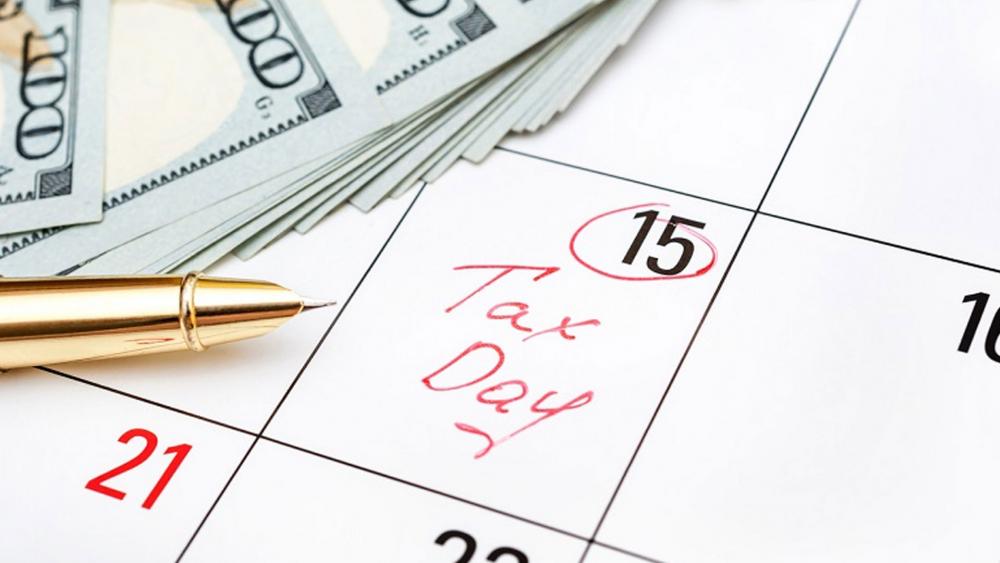Waiting until the last minute to pay your taxes can cost you if you are expecting a refund since the government hangs on to your money and receives more interest on it. However, if you owe money to the government, that same principle applies to you. Why not wait until the last minute?
There is no reason not to, as long as your return is postmarked or electronically submitted by July 15th, 2020, and your payments are submitted then as well. Extending your deadline to file does not extend your payment time. You are expected to pay the amount you owe, or your best estimate, by the July 15th deadline.
"Filing for an extension doesn't get you an extension to pay," confirms Betterment Head of Tax Eric Bronnenkant. "Let's say you don't pay by the deadline, well then you're still going to have to pay interest on that money later anyway." He summarizes, "Requesting an extension doesn't solve any problems if your only problem is that you expect to owe money."
If you do have to make an estimate, it is usually best to err towards overpaying. Paying too much can always be applied to next year's taxes; however, paying too little requires that you pay interest on the difference – and could expose you to an audit if you greatly underestimate the amount.
You have four general payment methods from which to choose:
EFTPS requires registration with the IRS. It can take five to seven business days to register, so make sure you leave enough time for your registration process to be completed before your payment deadline expires.
Electronic methods can be used on all 1040 Series forms, but not all tax forms or taxes can be handled through electronic payments. For details, check the links available on the IRS website. This page also contains links for businesses to use in electronic payments.
Should the computer gremlins attack or you spill coffee on your keyboard, you can still pay by phone using one of the IRS-approved credit/debit card processors, or by calling the IRS directly and using EFTPS.
The good news is you have options, but the bad news is that you still must pay. Choose whichever payment method works best for you and pay at the last minute with confidence. Just do not forget to make that payment before the deadline, or you'll have to make a much bigger payment later.
Failing to pay your taxes or a penalty you owe could negatively impact your credit score. You can check your credit score and read your credit report for free within minutes by joining MoneyTips.
- Check/Money Order – The classics never go out of style. The IRS accepts checks or money orders payable to the United States Treasury. Include your name, address, phone number, Social Security number, tax year, and the 1040-V payment voucher (or other voucher as appropriate for the tax form you are submitting). Check the IRS website to find the address to which your check or money order should be mailed.
- Credit/Debit Cards – There are three IRS-approved payment processors for credit or debit cards. Links to these vendors may be found on the IRS website. Debit card charges are usually flat fees ($2.00-$3.95) and credit cards are charged as a percentage fee (1.87%-1.99%).
- Electronic Funds Withdrawal (EFW) – Essentially, this is the reverse of direct deposit. Most e-filing methods require EFW. This must take place as part of the electronic filing process – you cannot initiate EFW after your taxes have been submitted.
Check with your financial institution and verify that they allow EFW transactions. If so, they will supply you with the routing number and account number for the account from which you wish to have the funds withdrawn. Do not assume that the routing number on your checks is the correct one – sometimes extra internal routing digits are included, and the numbers need to conform to the IRS standards.
You will need to supply a contact phone number, Social Security numbers for every filer, and a payment date. You can still choose to have your payment made on July 15th, even if your form is filed earlier.
- Electronic Federal Tax Payment System (EFTPS) – This is the IRS-run equivalent of EFW. It has the advantage of allowing same-day wiring of funds from your account and is useful for scheduling regular estimated tax payments for the self-employed.
This article was provided by our partners at moneytips.com.
How To File For A Tax Extension
The Punishing Costs Of Paying Your Taxes Late
You Owe Taxes, But Can't Pay the Bill
STAY UP TO DATE WITH THE FREE CBN NEWS APP
Click Here Get the App with Special Alerts on Breaking News and Top Stories
We encourage readers who wish to comment on our material to do so through our Facebook, Twitter, YouTube, and Instagram accounts. God bless you and keep you in His truth.
Did you know?
God is everywhere—even in the news. That’s why we view every news story through the lens of faith. We are committed to delivering quality independent Christian journalism you can trust. But it takes a lot of hard work, time, and money to do what we do. Help us continue to be a voice for truth in the media by supporting CBN News for as little as $1.











 Support CBN News
Support CBN News







